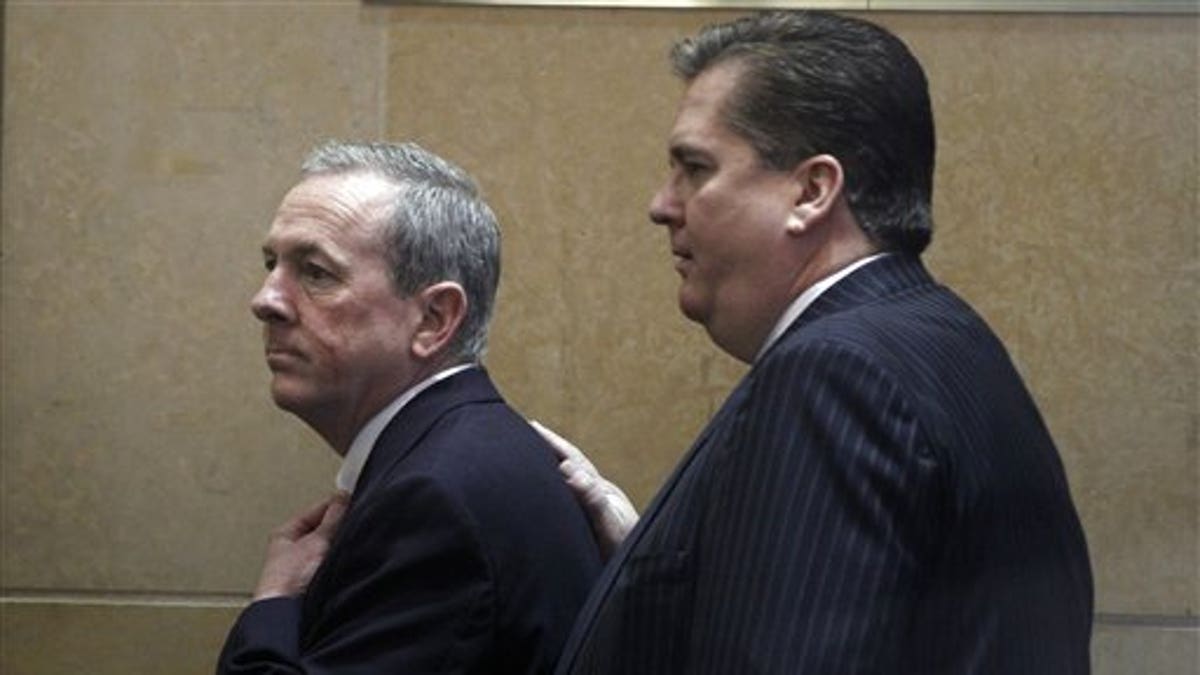
March 26: The Rev. James J. Brennan, left, arrives in the Criminal Justice Center in Philadelphia. (AP)
PHILADELPHIA – A landmark sex abuse case that rocked the Roman Catholic Church went to trial Monday, marking the first time a U.S. church official faced a jury on allegations he endangered the welfare of children by covering for predator priests.
The trial will be closely followed by Catholics across the country, including some who say their lives were destroyed.
Monsignor William Lynn and the Rev. James Brennan of the Archdiocese of Philadelphia pleaded not guilty.
Their attorneys are expected to attack the credibility of the priests' adult accusers, but that strategy took a hit last week when defrocked priest Edward Avery entered a last-minute guilty plea, confirming one accuser's account of a brutal 1999 sexual assault inside a church sacristy on a 10-year-old altar boy.
The 61-year-old Lynn handled priest assignments for the archdiocese as secretary for the clergy from 1992 to 2004.
He is the first U.S. church official ever charged with endangering children. Prosecutors say he failed to act to try to remove Avery and Brennan from ministry, despite prior child sex complaints.
Assistant District Attorney Jacqueline Coehlo told the jury during opening statements that a decades-long conspiracy met victims with skepticism "at all cost."
Avery agreed to serve 2 1/2 to five years in prison for involuntary deviate sexual intercourse and conspiracy to endanger a child's welfare. He also acknowledged that the archdiocese kept him in parish work despite knowing of the earlier complaint.
Brennan is accused of raping a 14-year-old boy in 1996.
Lynn remains the focus of the trial. Lynn could get up to 28 years in prison if convicted of two counts each of conspiracy and child endangerment.
He has argued that he prepared a list of 37 accused priests in 1994 and sent it to Cardinal Anthony Bevilacqua -- only to have Bevilacqua have it shredded. The cardinal died this year, but his videotaped deposition could be played at trial.
Prosecutors blasted Bevilacqua, Lynn and other church officials for hiding scores of complaints that streamed into the archdiocese over several decades. Prosecutors detailed their findings in a 2005 grand jury report but said they couldn't charge anyone because the statute of limitations had expired.
But last year, they filed a second grand jury report based on recent complaints filed within newly expanded time limits.

